Building an inclusive and greener world

Intellectual
Capital

Manufactured
Capital
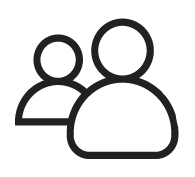
Human
Capital
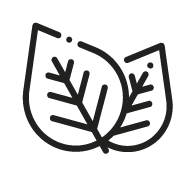
Natural
Capital

Social &
Relationship
Capital
We channelled most of our resources to address the urgent need for relief at the start of the pandemic between March and September 2020. We took on the responsibility of providing food and hygiene essentials to communities around our operations across the world. This directly impacted our Social and Relationship Capital.
Meanwhile, we continue to remain committed to innovating, exploring new technologies, and improving our processes to become more sustainable through enhanced Manufactured Capital and Intellectual Capital.
After September 2020, we continued to focus on and invest in social programmes that align with our goals. We continue to leverage our Human Capital through volunteering efforts to maximise Natural Capital and Social and Relationship Capital.
For more details, refer to the SDG mapping on our website







Approximately 23 per cent of the promoter holding of the Godrej Group is held in trusts that invest in the environment, healthcare, and education.
Environment
We are proud to protect, develop, and maintain the largest privately managed belt of mangrove forests in Mumbai since the 1940s
Education
The Godrej Udayachal pre-primary and primary schools focus on all-round development of children. The Udayachal high school has been accredited with the International School Award in recognition of its global education curriculum and innovation in classroom teaching.
We also support Teach For India, a nationwide movement involving outstanding college graduates and young professionals who commit two years to fulltime teaching in under-resourced schools and become lifelong leaders working towards the pursuit of equity in education. In 2020, the movement covered 260 schools, with over 900 fellows impacting over 32,000 children. Teach For India has a strong network of over 3,400 alumni serving over 33 million children. A recent study also revealed that the alumni community has founded over 150 organisations.
Healthcare
The Godrej Memorial Hospital aims to provide high-quality healthcare at affordable costs. One such initiative is our partnership with Smile Train, a USA-based NGO, which helps in performing corrective cleft lip and palate surgery in children from low-income families. We offer surgery and hospitalisation to these children free of cost.
An aerial view of the mangrove
forests around our headquarters
Godrej One in Mumbai
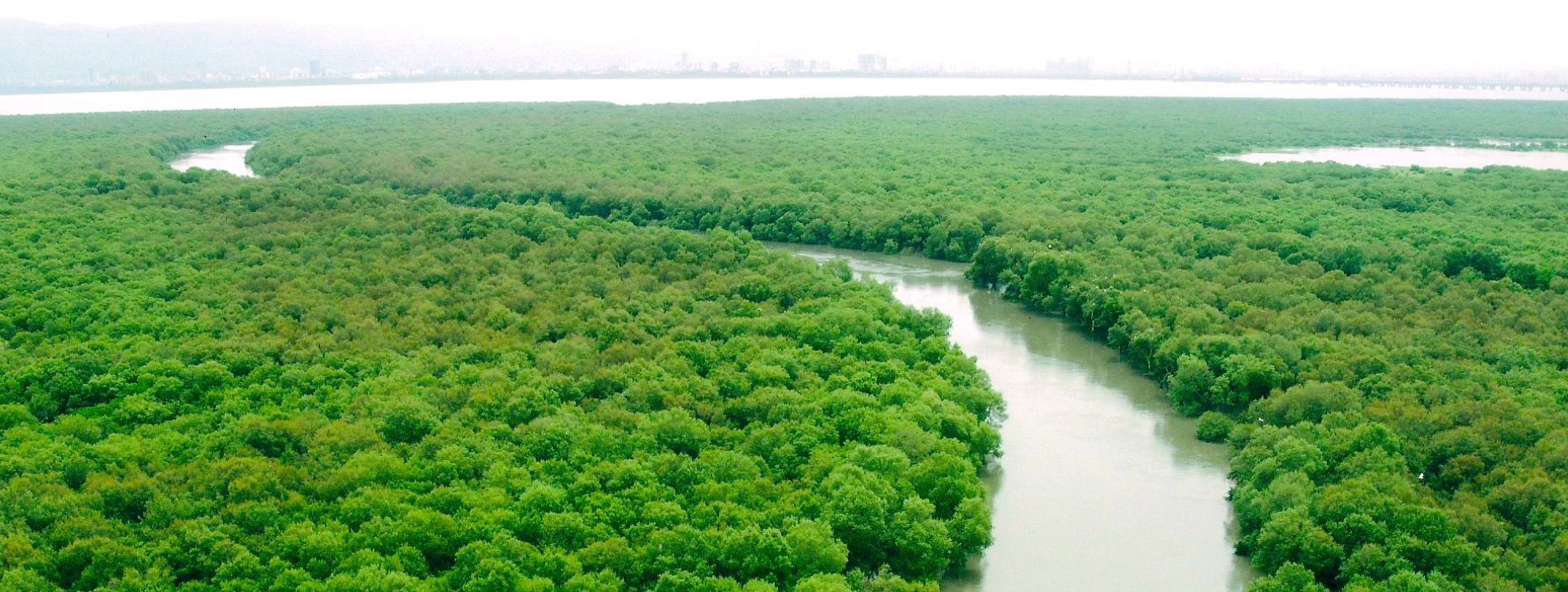
Sustainability at GCPL is guided by our Group's Good & Green vision of creating a more inclusive and greener world.
We have a comprehensive CSR Policy that outlines programmes and projects to create a positive impact on our stakeholders. Our CSR Committee reviews, monitors, and provides strategic inputs on our sustainability efforts.
Over the years, we have aligned our initiatives with the United Nations' Sustainable Development Goals, the Government of India's social development priorities, and the needs of our local communities to deliver high-impact programmes.
In fiscal year 2020-21, we recognised the urgent need for philanthropic and corporate support to ensure immediate COVID-19 relief for our communities. We pivoted our initiatives to consider this, supporting a wide range of programmes with the government and local municipal bodies, civil society organisations, and citizen initiatives to reach the most vulnerable communities in our ecosystem. We also invested in medium- to long-term recovery initiatives.
Our key focus areas and corresponding initiatives

Providing COVID-19 relief and recovery to protect lives and livelihoods

Ensuring judicious use of natural resources

Enhancing employability of beauty professionals
Enabling economic empowerment and building resilience among micro and nano beauty entrepreneurs
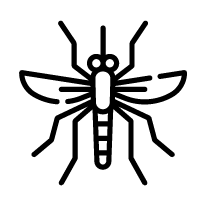
Partnering with the Government of India to eliminate malaria by 2030
Through Project EMBED (Elimination of Mosquito Borne Endemic Diseases) that supports the Government's efforts to eradicate insectborne diseases
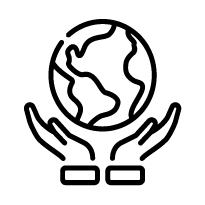
Enabling sustainable communities
Implementing a range of environmental sustainability and community development initiatives
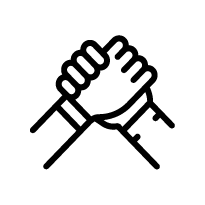
Fostering volunteerism
Initiatives for Godrejites to connect more meaningfully with our communities

The impact of COVID-19 has not only been felt in terms of a public health crisis of unprecedented proportions but also as a long-term economic disaster impacting the lives and livelihoods of billions of people worldwide. In emerging markets where GCPL operates, this is further complicated by pre-existing inequalities.
The Godrej Group was one of the first companies in India to respond to the crises in terms of a plan of action for our own people and business, as well for our communities and country. In addition, we began to plan for a similar response across all our international locations as well.
Our initial response had two phases:
Phase I
Immediate relief
(March-September 2020)
Phase II
Mid to long-term recovery
(October 2020 onwards)
Phase I
When the pandemic began, the safety and well-being of our team members was our top priority. While our office staff continues to work from home, our manufacturing facilities serve our consumers by manufacturing and delivering essential products such as soaps, hand wash, sanitisers, and household insecticides.
We follow strict protocols of social distancing, sanitation, and hygiene across all our sites and offices. At the same time, we also ensure our upstream and downstream transport teams and sales and distribution teams use the necessary safety kits and follow standard protocols to keep themselves safe. Beyond our business operations, we have reached out to vulnerable communities across our ecosystem.
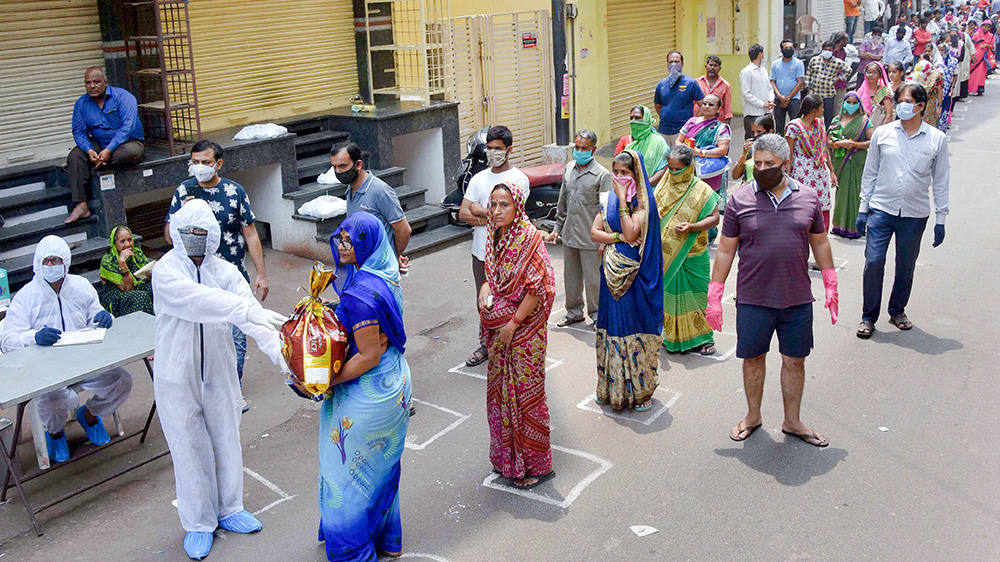
Donating food supplies among local
communities in India
Key initiatives:
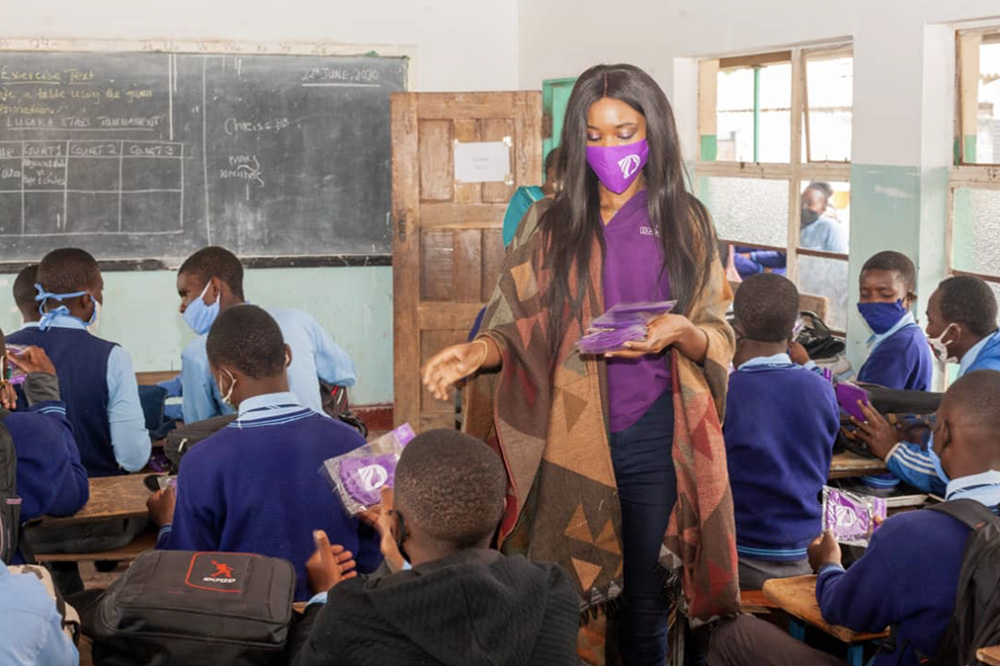
Distributing face masks
at a school in Zambia
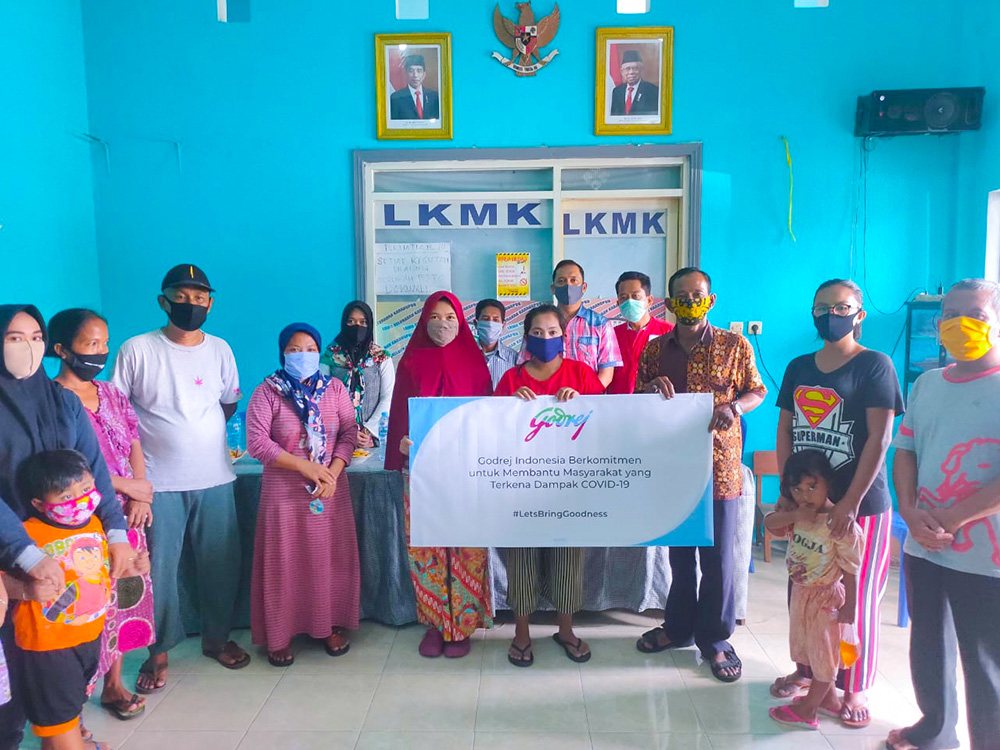
Supporting local communities
in Indonesia
We donated 38 ICU beds to
a hospital in Guwahati
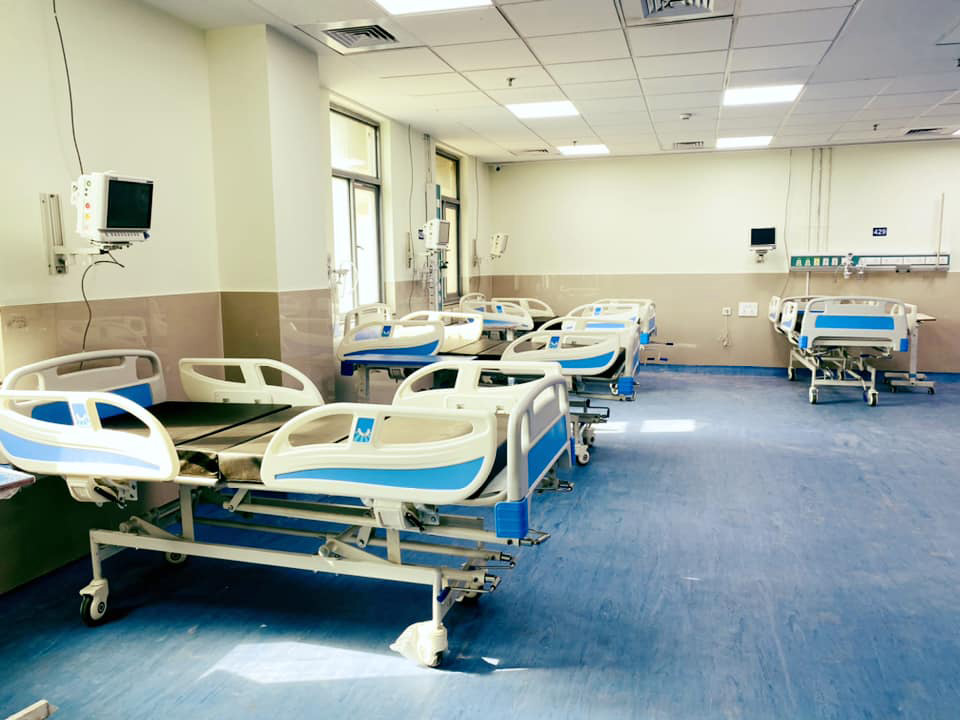
Donating face masks to support
national relief efforts in South Africa
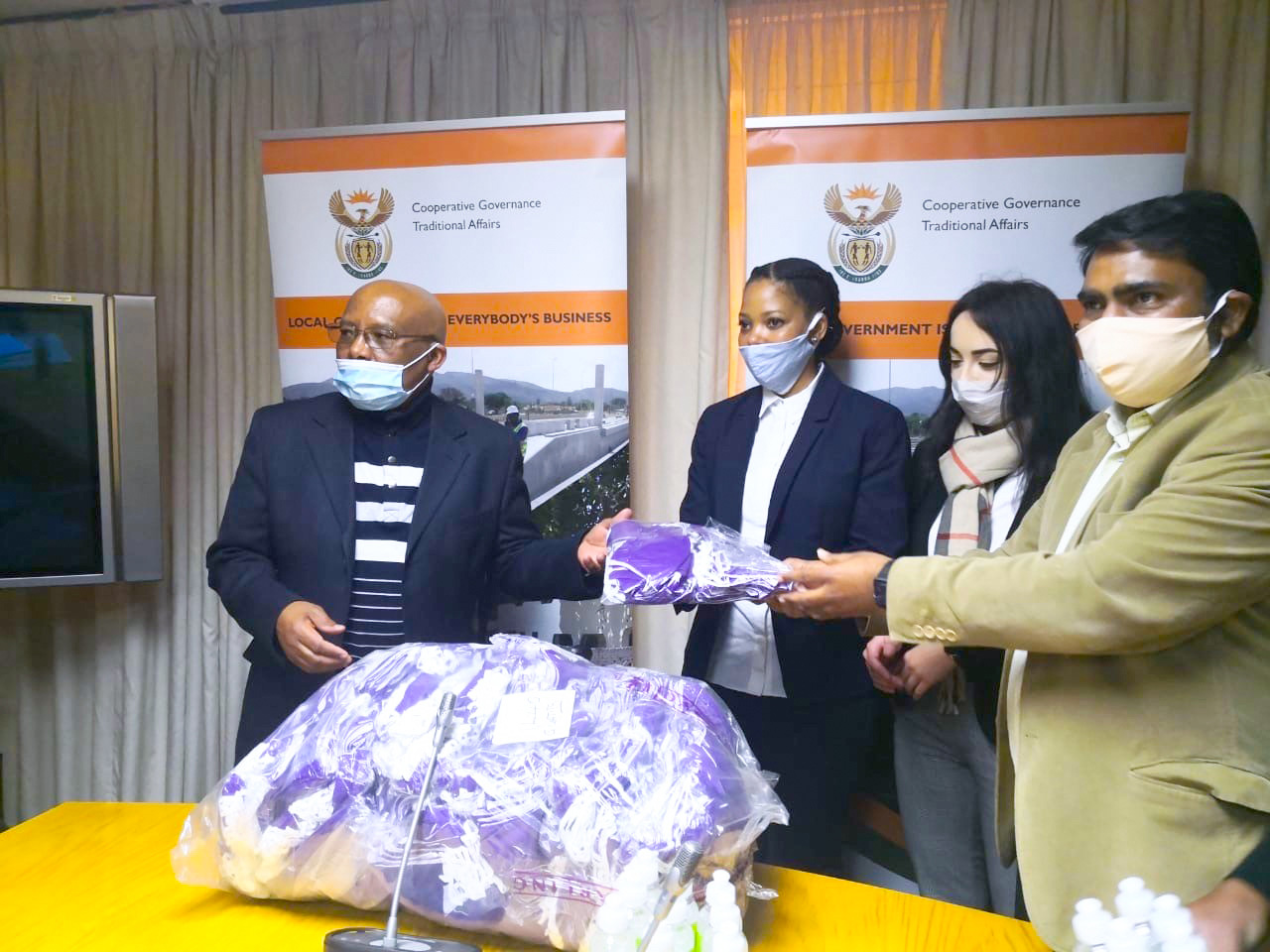
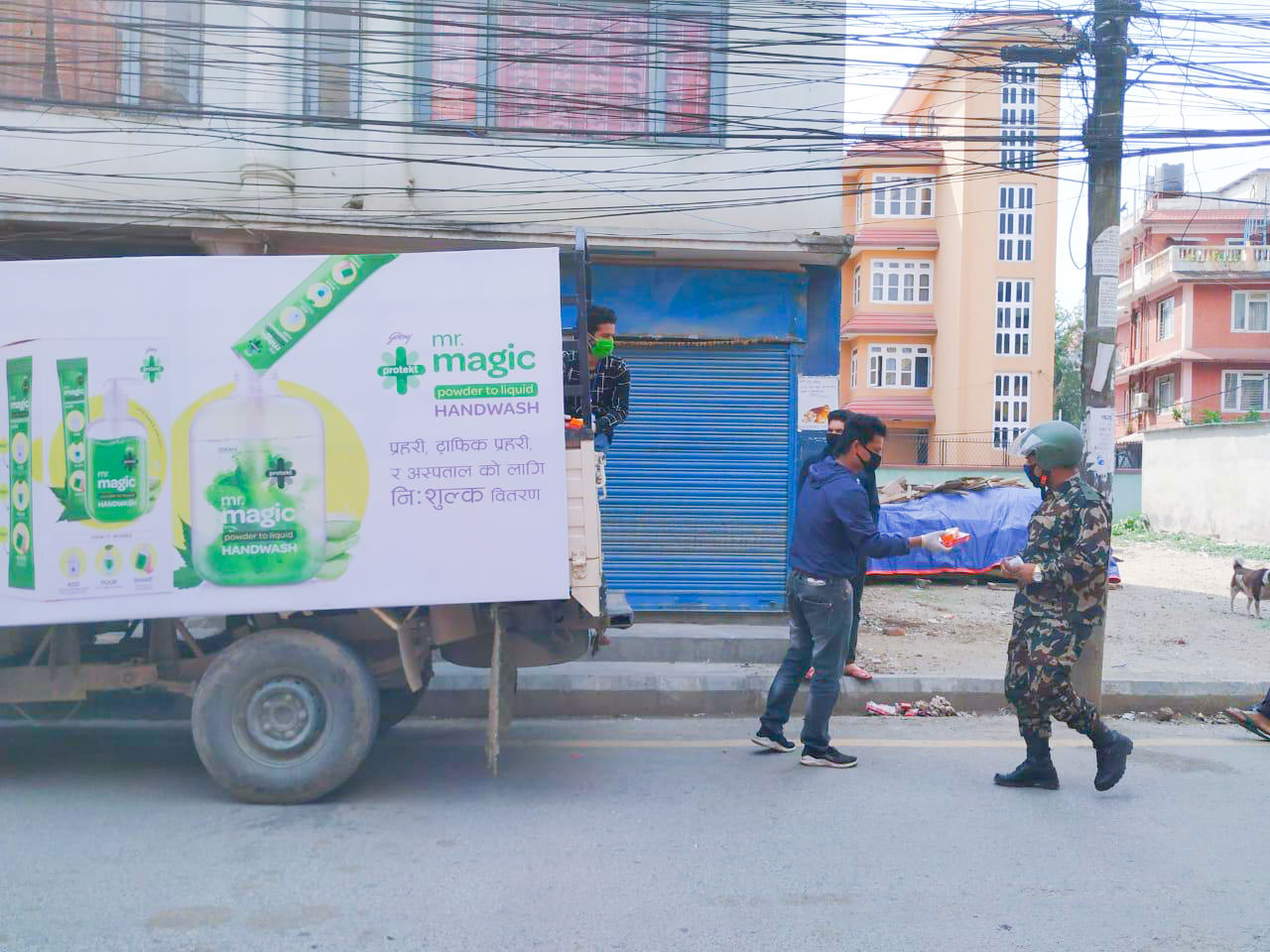
Donating our products like soap,
mosquito coils, and hand wash in Nepal
Phase II
National and state governments have announced relief packages for those who have been hit the hardest, and we are working with our non-profit partners to unlock these funds through government schemes for our Beautypreneurs. We helped unlock ₹2.5 lakh in government schemes for 171 Beautypreneurs.
Post-lockdown, we have also started providing need-based livelihood support such as returnable grants, insurance cover against COVID-19-related medical expenses, training on business recovery post lockdown, and incubating nano and micro entrepreneurs in key geographies.
In Kolkata and Guwahati, we are providing livelihood recovery training and support to 5,000 street vendors - one of the most vulnerable and at-risk occupation groups within the informal sector workers. We are training them on health, hygiene, safe product handling, proper waste disposal, business and financial literacy, and digital payment methods. We are also building awareness on various social entitlements and social protection schemes available to them.
In Thane and Palghar, we are working to establish micro enterprises in rural areas, which will positively impact over 600 people and help them in setting up market platforms. The project has a special focus on enterprises led by women and returned migrant workers. It is developing entrepreneurship and enterprises in farm produce value addition, aggregation, and trading. We are also creating marketplaces for rural entrepreneurs by setting up farmer markets. These pop-up marketplaces will help connect buyers (from urban India) and sellers (from rural India), leading to responsible consumption and production.
In Mumbai, we are supporting 250 women to access livelihood options through a network of 50 community childcare centres, providing safe and affordable childcare services. The project will help women establish, rebuild, and renew the centres by diversifying and exploring related business opportunities. It will also link women to government welfare schemes for availing entitlements and to skill partners for gaining livelihood opportunities.
In Malanpur, we are setting up an entitlement facilitation centre to ensure people get access to and avail their basic entitlements of various state and central government welfare schemes. The project is identifying individuals, capacitating and training them, and handholding them to avail entitlements.
In Baddi, Jammu, Pune, and Lucknow, we are working with 750 out-of-work adults and 350 adolescents who are dropping out of school. We are supporting the out-ofwork adults to get formal and semi-formal jobs and handholding them to set up micro enterprises. With adolescents, we are identifying dropouts, providing learning opportunities, enhancing their life-skills, and building their resilience.

As part of our Good & Green vision, we have established five environmental sustainability goals to be achieved by fiscal year 2020-21. Our data calculations are performed for all locations where we have 100 per cent operational control. Our performance is guided by the sustainability team at the corporate level and driven by manufacturing cluster heads and team members at each of our manufacturing locations.
At a product level, we have started monitoring green parameters for 12 products and are working on LCAs for three of our products. Our teams are working on implementing the opportunities identified in these LCA reports.
We have also extended our ESG parameters to our supply chain and are working closely with around 130 of our suppliers (covering 70 per cent of our procurement spends) on improving their sustainability performance.
For more information on initiatives, please refer to the following:
Making our supply chain best-in-class > Sustainability of the process
Our goals and performance
1. Energy
Approach
Performance*#
2. Water
Become water positive
Approach
Performance*##
3. Waste
Achieve zero waste to landfill
Approach
Performance*###
* Performance as on March 2021 against fiscal year 2010-11 baseline
# Energy use is calculated by specific energy consumption per tonne of production
## Water usage is calculated by specific water consumption per tonne of production
### Waste generated is calculated by specific waste to landfill per tonne of production
#### Emissions are tracked for Scopes 1 and 2 and calculated by specific GHG emissions per tonne of production

Our livelihood programmes focus on economic empowerment and are a part of our CSR initiatives. They are guided by our Good & Green vision and our CSR Policy and are reported under Schedule VII, Section 135 of the Companies Act, 2013 in the Directors' Report. We follow a shared value approach that addresses critical economic needs of marginalised and underprivileged sections of society by leveraging our expertise.
Salon-i and Beautypreneur in India
Salon-i and Beautypreneur are our flagship programmes that train and work with women in the beauty industry.
Salon-i is a vocational training programme for women. It is designed entirely in house to train young women in basic skills of beauty, skin, hair care, and mehendi application. In addition, life skills and entrepreneurship development modules enable women to take up jobs or pursue self-employment depending on their unique skillsets and circumstances. Though Salon-i's employability goal is small compared to the country's overall need, the programme is unique as it specifically aims at employability, entrepreneurship, and empowerment of women. Since fiscal year 2012-13, we have trained over 2,84,000 women. This includes the young women trained by our Beautypreneurs.
A third-party impact assessment of Salon-i showed a threefold increase in our trainees participating in paid work - from 14 per cent to 45 per cent, of which 78 per cent were first-time entrants in the workforce.
As an extension of Salon-i, we reached out to women micro entrepreneurs in the beauty and wellness sector in various parts of the country and set up the Beautypreneur platform. Beautypreneur aims at incubating beauty and wellness entrepreneurship in women, thereby enabling them to start training other girls. This is in addition to their regular salon business, which helps them expand their enterprise. Since fiscal year 2016-17, we have supported over 4,210 women entrepreneurs.
A third-party Social Return on Investment study of the Beautypreneur programme showed an overall social return of ₹6.46 on the programme for every ₹1 invested. Beautypreneurs reported a 50 per cent increase in their revenue after training, achieved with a mix of lower expenses and higher sales of their services
COVID-19 impact
The beauty and wellness industry has been badly hit during the pandemic. As per the Ministry of Micro, Small and Medium Enterprises, the sector has suffered over 70 lakh job losses during the lockdown. Healthcare concerns over the very nature of beauty operations have kept customers away from accessing beauty and wellness services.
Over two-thirds of the jobs in the sector are held by women and young girls from low-income groups. Moreover, a McKinsey study revealed that female job loss rates owing to COVID-19 are about 1.8 times higher than male job loss rates globally.
Our partner, Samhita Social Ventures, in its study revealed that income of small beauty parlours led by women is down by 50 per cent, even six months after lockdown. These micro businesses are dependent on daily cash inflow to run their business. Moreover, their savings were exhausted during the lockdown and many even reported that their spouses are out of jobs, leaving them cash crunched.
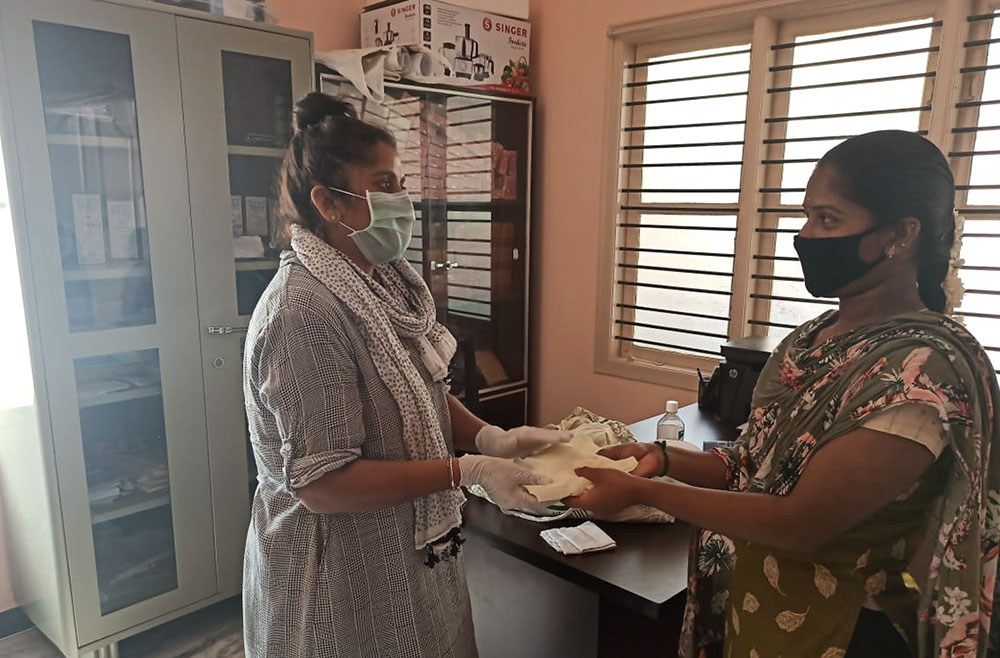
Providing personal safety kits to
Beautypreneurs
COVID-19 pivot
We used the lockdown as an opportunity to refresh the domain skills of our Beautypreneurs. Our Godrej Professional hair team also volunteered to host advanced training sessions to further help them. We communicated extensively on health and hygiene awareness, providing them with personal safety kits and sharing guidelines that need to be followed as salons reopen. We are also helping them explore ways they can diversify their income through homemade beauty products and wellness solutions.
As lockdown measures eased, we tied up with Samhita's Revive initiative - a returnable grant model that provides access to timely grants and technical assistance to people and small businesses. We supported 440 Beautypreneurs by rolling out interest-free returnable grants to them. In addition, 46 per cent of the women are borrowing for the first time, and hence, we have issued small loans of ₹5,000 and ₹10,000 to be repaid in 12 months.
The loans are used to buy safety equipment and salon consumables and, in some cases, to diversify into a new income stream such as tailoring or catering. Through this process, the women have also learned important digital and financial skills. The returnable grants have approximately 96 per cent return rate. The repaid amount will be used to fund other deserving Beautypreneurs and later for reskilling programmes to help increase their incomes
During fiscal year 2020-21, we did not train any new young girls as part of Salon-i. We ran a small pilot in the third quarter to train 40 barbers in Gujarat and Rajasthan and will expand on it in the next year.
In December, our Innovation and Sustainability teams came together to build a community panel in Mumbai. Together, we worked with Salon-i alumni to train Beautypreneurs and upskill them to become research facilitators and bring community insights and a fresh neutral perspective. We have now successfully established two consumer panels at Dharavi and Virar. The panels help us engage with and access their communities and give us an opportunity to understand their specific behaviours towards life in general and health and hygiene habits in particular.
Given the negative impact of the pandemic on lives and livelihoods, we have been able to support these cash crunched individuals and their communities with an alternate source of income. Beautypreneurs working with us were able to earn approximately ₹15,000 each since the start of our project in December 2020. We are looking at expanding this initiative to other parts of the country to not only enrich communities but also enhance our proprietary insights that tie back to our shared value approach.
Training programmes
in Africa
Kenya
The Wezesha Kenya Youth Empowerment Programme is a way of providing support to young mothers and girls from poor backgrounds who dropped out of school with no formal skills or stable income sources. The programme aims at youth empowerment through employability to tackle poverty.
As part of the initiative, we run a programme on hair dressing and beauty therapy. Along with core domain skills, we provide soft skills, entrepreneurial skills, financial literacy, and basic business skills as part of the training. We also provide post-training support and handhold them as they start out on their own. We run training for young women at 34 vocational training centres in Kenya, of which 30 centres are run in partnership with local county polytechnics. We have trained over 4,200 women in the past five years.
In fiscal year 2020-21, we scaled down the programme and organised refresher training of the trainers in September after COVID-19 lockdown restrictions eased. We also completed online training of 479 trainees to help them complete the course and start working at a job or build their own salon.
Ghana
COVID-19 lockdown measures in Ghana disrupted employment opportunities for young people and triggered labour shortage for our manufacturing plants. To find a solution that bridges both these problems, our team reached out to United Nations Habitat, a multi-lateral agency, who connected us with the NGO Federation of Urban Poor that works with people from 278 communities, primarily working in Ghana's informal sector. We partnered with the NGO to mobilise workers for the plant and build work sheds in densely populated areas to manufacture dry hair.
We set up a new manufacturing facility in Tema, Accra, to scale up our production after lockdown and the NGO helped mobilise over 200 workers from the local slums in the first week itself. The facility now operates with over 450 workers and is ramping up operations.
Going forward, to minimise the local commute costs and keeping in mind the health the safety of the workers, the project will build work sheds in densely populated urban areas where we will provide raw material, manufacturing equipment, and offer quality supervision. This will ensure higher pay out to workers, while enabling us to meet production targets.
Nigeria
In November, we launched Darling Nigeria's Professional Stylists' Academy in partnership with MegaGrowth and Make Me Beauty Salon. This joint effort has helped in setting up a state-of-theart academy for passionate and talented Nigerian stylists who want to advance their careers in the hair industry but do not have the means or resources for formal training. The academy offers a robust curriculum with training in the areas of hair, hair styling, hair trends, product knowledge, entrepreneurship development, and personal development. We are working with 40 stylists and helping them get better at hair styling skills.
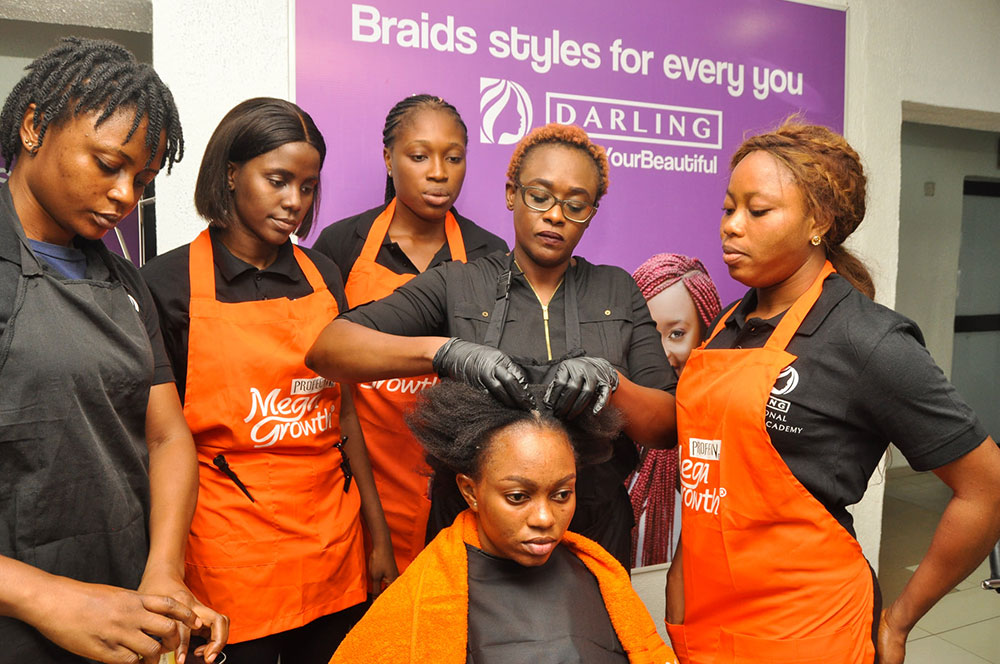
The Darling Professional Stylists'
Academy in Nigeria

Overview
Project EMBED started in 2015 in Madhya Pradesh in partnership with the Ministry of Health & Family Welfare's National Vector Borne Disease Control Programme (NVBDCP). This year, we extended our initiative to Uttar Pradesh and Chhattisgarh. We have also started an urban dengue and chikungunya project in four cities under the Integrated Vector Management project with the NVBDCP. Despite challenges, our programme covered 824 villages, and we have met all our coverage targets for
the year.
We collaborate with NGOs and state governments to run intensive behaviour change programmes in regions with a high annual parasite index, where malaria transmission risks are the highest. We work in each village for two years, spreading awareness among households and people at the bottom of the pyramid and vulnerable and marginalised groups in tribal, hilly, and hard-to-reach areas.
COVID-19 pivot
At the peak of COVID-19 in the first quarter of the year, the risk of malaria outbreak was looming large in India as the monsoon season was about to set in. While healthcare systems were grappling with COVID-19 cases, there was a dire need to keep a check on malaria outbreaks and double down on precautions.
Our pre-season preparedness and awareness activities started as early as April 2020 during the initial lockdown. At the same time, we also extended our support to local health departments to spread awareness on COVID-19. We provided support to local health workers, relaying information back to primary or community health centres and following up of at-risk, suspected, and quarantined persons.
A big challenge is that fever is a common symptom of both malaria and COVID-19. Testing for malaria has taken a back seat due to the pandemic. Our programme played a vital role in ensuring people are aware, take precautions, and seek medical support at the right time.
Impact
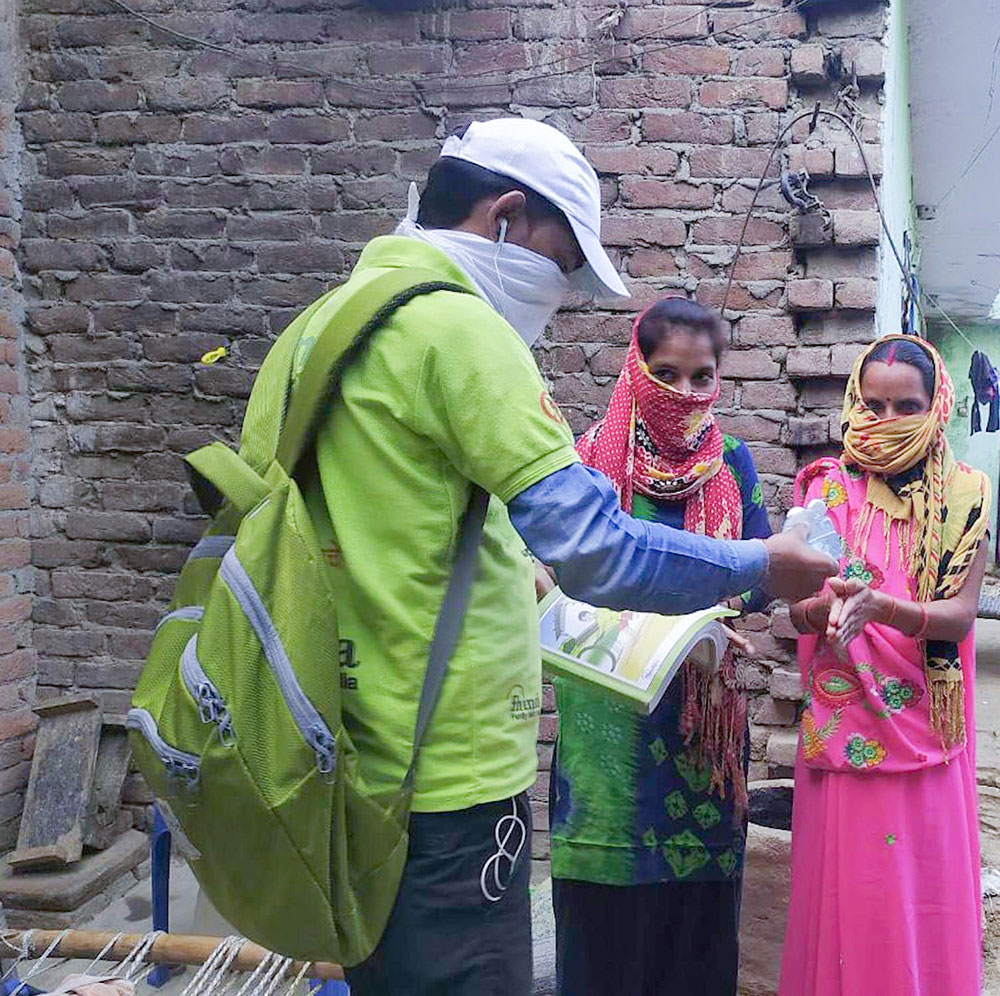
Supporting local health bodies to spread
awareness on malaria and COVID-19

A significant focus of our CSR programmes is to work towards sustainable development of communities to ensure that current needs are met without compromising future requirements. Our programmes look to address the challenges of climate change, urbanisation, and economic growth.
Waste management
Overview
Our efforts towards solid waste management extend beyond our manufacturing plants and immediate areas of operations. As part of our CSR efforts, we run community waste management projects using circular economy principles. In the past, we have collaborated with the Hyderabad and Kalyan-Dombivali Municipal Corporations.
Most recently, we have partnered with the Pondicherry Municipal Corporation to implement a community waste management project. Due to COVID-19, the project was delayed, but it was launched in the third quarter with a beach clean-up drive. We are digitally tracking the waste management process and achieved 100 per cent door-to-door collection and 20 per cent source segregation in the pilot area of the project. Through the project, we aim to scientifically manage 140 MT of waste per day from Pondicherry to establish a circular economy.
We are also working with a social enterprise in Guwahati to convert plastic waste into fuel, and with another partner in Assam to recycle forest and agri residue into briquettes for use as biofuel. Through these projects, we currently process 25 MT of waste per day, with a goal to scale it up to divert 50 MT of waste per day from landfill by 2023.
Watershed management
Overview
Our integrated watershed development project is helping restore the ecological balance in the drought-prone district of Siddipet in Telangana. Currently, groundwater levels are lower than 400 ft in many areas, and as a result, farmers are under acute pressure. We are partnering with NABARD and a local NGO to rejuvenate the land and recharge groundwater levels to facilitate necessary irrigation, increase cropping cycles, improve quality and quantity of produce, enhance livelihoods, and ensure sustainable agriculture practices.
Output
We have completed treating 1,362 hectares of land covering 42 per cent of the total area under the project. Till date we have provided over 5 lakh saplings for direct plantation and seeds for dibbling. Due to the pandemic, the livelihoods of farmers were impacted. We provided financial assistance to 174 farmers through returnable grants to support their livelihoods. We also captured 3 million KL of water in fiscal year 2020-21 which is 3.5X of our water use at GCPL.
By 2023, we aim to treat 3,234 hectares of land as well as build capacity of the whole community on water management and sustainable agriculture.
Community initiatives
Overview
Another focus of our CSR programme is working closely in communities around our manufacturing plants. All of our efforts this year were diverted to COVID-19 response. We provided 4,400 food packets to the communities around our manufacturing sites, reaching out to 22,000 people.
Around our flagship plant in Malanpur, we had rolled a ‘Youth ki awaaz' initiative, which is a water, health, and sanitation behaviour change programme that works with young people to drive change. We had enrolled 81 young people at the start of 2020. With the COVID-19 outbreak, the team supported COVID-19 surveillance and prevention of the outbreak in the intervention villages we had planned for. The project team was issued identity cards form the health department and has been working in close coordination with Gram Panchayats, Panchayat Secretaries, Public Distribution Shops, Accredited Social Health Activist (ASHA), and Anganwadi workers for the following:
The youth reached out to 1,123 households in four villages through these initiatives. The project also trained 300 adolescent girls on menstrual health and hygiene and provided them sanitary pads.

Our multi-faceted volunteering platform provides a range of opportunities for Godrejites to contribute their time and skills in community activities. However, this year, we had limited our volunteering opportunities to the digital medium.
Godrej Global Volunteering Day
This is our annual day of community service. In 2020, close to 320 of our team members across the globe volunteered from their homes. We tweaked our volunteering week to focus on tiny tasks on sustainable living, hosted on the Aimeo app that could be done from anywhere and at any time. This was the first time we experimented with hosting volunteering week online, and the response was truly inspiring.
Of the 56 tasks we hosted on the app, each volunteer, on average, completed 28 tasks. Across the Group, we had 1,320 volunteers that helped save 67,560 litres of water and 13,658 kWh of electricity and recycle 2,735 kg of waste. We also got healthier as we burned 1,77,500 calories and took time off for self-care.
Brighter Giving
These are one-time volunteering opportunities to help make a meaningful impact with your skills. We partner with Goodera to scope out relevant volunteering opportunities and connect with our team members. Our volunteers provide career counselling, give academic mentoring, take an online fitness class, and help record an audiobook, among other activities. In fiscal year 2020-21, 100 of our team members across the Group volunteered for a range of virtual volunteering activities.
Godrej Corona Quilt Project
We partnered with the Corona Quilt Project that collates people's experience of the pandemic on digital squares. These squares are weaved together in a massive quilt and showcased publicly across Mumbai. Over 292 Godrejites have shared their experience of the pandemic in the form of an artwork. We have also received over 700 submissions from our NGO partners, and together our squares will be displayed at our headquarters in Godrej One, Mumbai, after they are returned from the public showcase.
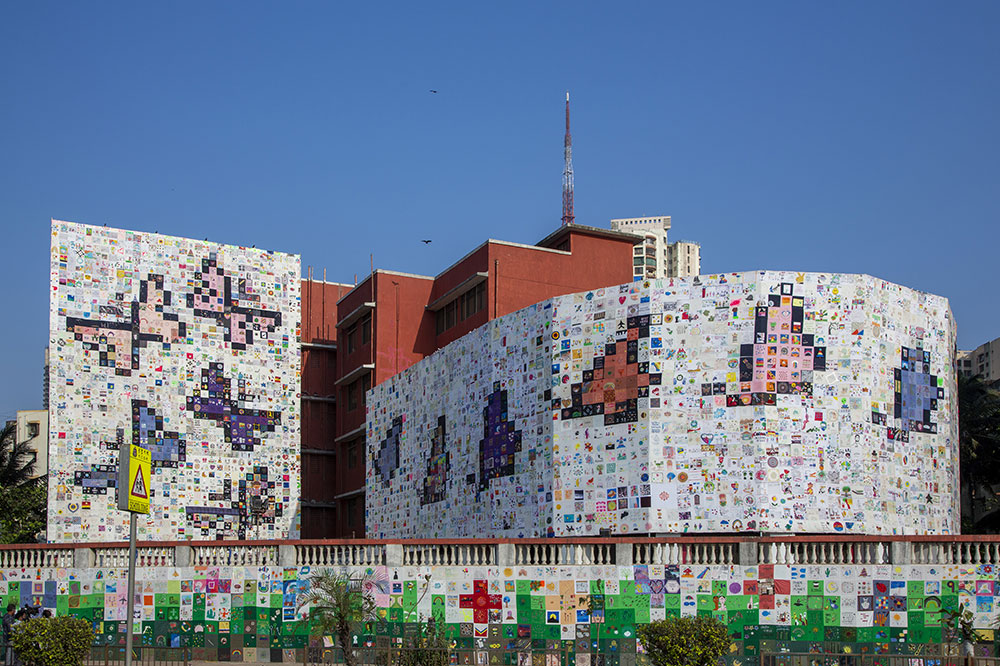
The Godrej Corona Quilt Project
on public display in Mumbai, India
World Environment Day
We celebrated World Environment Week online during the week of June 5, 2020 and explored the theme of biodiversity. We hosted a webinar on how individuals can connect with the nature around them and hosted photography and quiz contests. Over 800 of our team members participated over the week.
Daan Utsav and Payroll Giving
In total, 72 Godrejites across the Group participated in Daan Utsav though one-time donations, buying hand-made products from our NGO partner, participating in awareness session webinar, volunteering and signing up for Workplace Giving, and supporting our NGO partners with a fixed monthly donation.